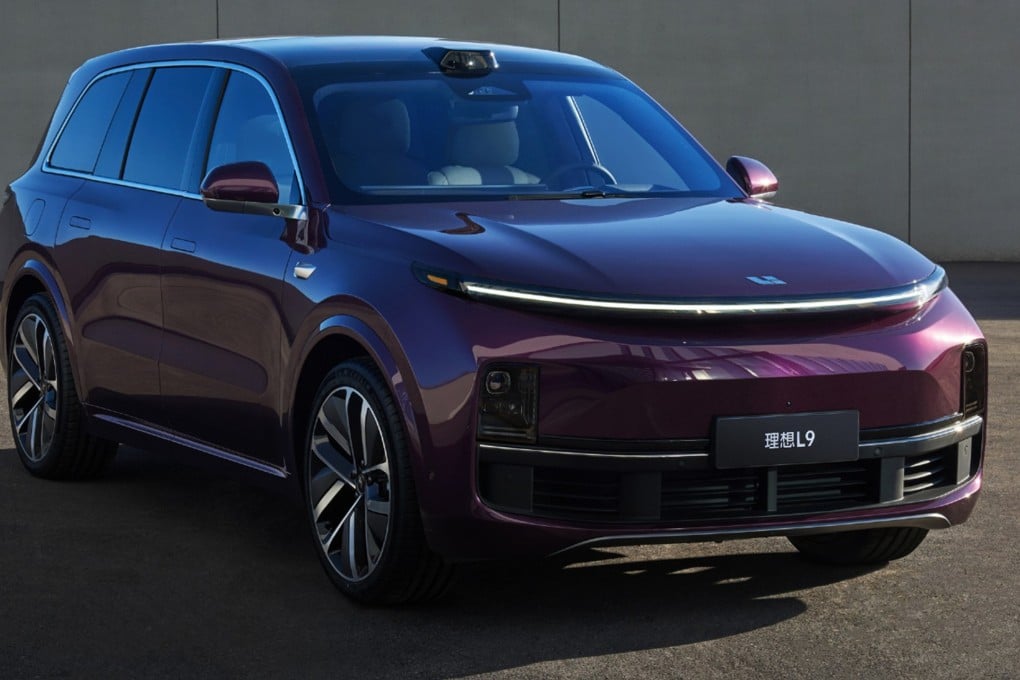Advertisement
Electric vehicles: Li Auto prices its L9 smart SUV from US$70,600 as it takes on BMW, Mercedes-Benz in China’s luxury car sector
- The relatively low price is likely to raise the competition in the mainland’s luxury car segment which is dominated by conventional marquees
- The Beijing-based EV start-up said the new model, with an extended battery range, can go as far as 1,315 kilometres on a single charge
Reading Time:2 minutes
Why you can trust SCMP

Li Auto, one of China’s biggest manufacturers of smart electric cars, has priced its second production model – the L9 sport-utility vehicle (SUV) – at 450,000 yuan (US$70,604) to 500,000 yuan.
The price tag is likely to raise the competition in the mainland’s luxury car segment which is dominated by conventional marquees such as BMW and Mercedes-Benz.
Luxury SUVs made by the big traditional carmakers are typically priced at more than 700,000 yuan.
Advertisement
The Beijing-based electric vehicle (EV) start-up said on Wednesday that the new model, with an extended battery range, can go as far as 1,315 kilometres on a single charge.
It is expected to debut on April 16, Li Auto said on the microblogging site Weibo.
Advertisement
“Those bestselling luxury models in China will face more new rivals in the coming years as electricity-powered vehicles are well received by Chinese drivers,” said Gao Shen, an independent analyst in Shanghai. “Li Auto’s upcoming SUV, to be launched during the Covid-19 pandemic, reflects the ambitions of Chinese EV start-ups as they eye bigger market share.”
Advertisement
Select Voice
Select Speed
1.00x